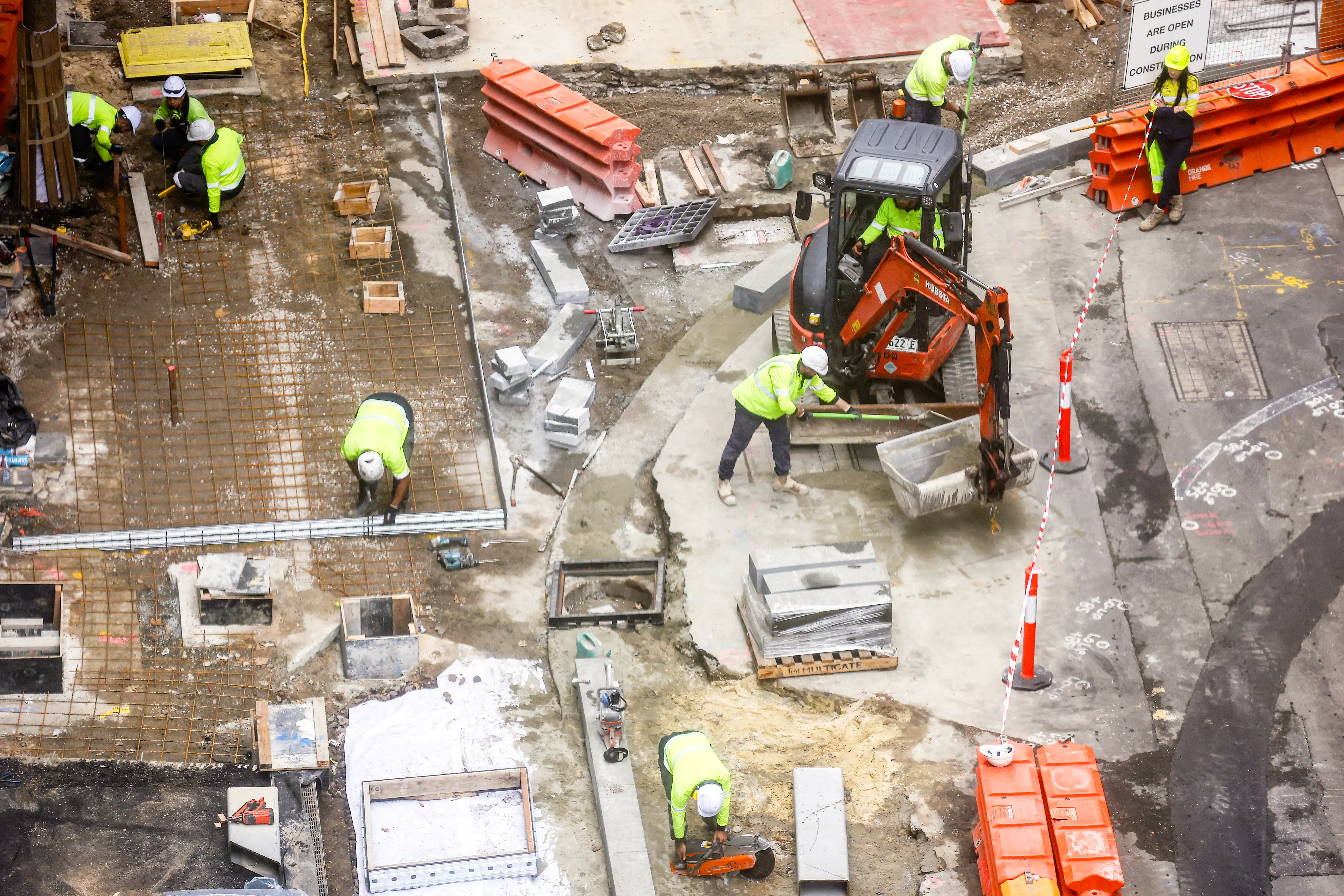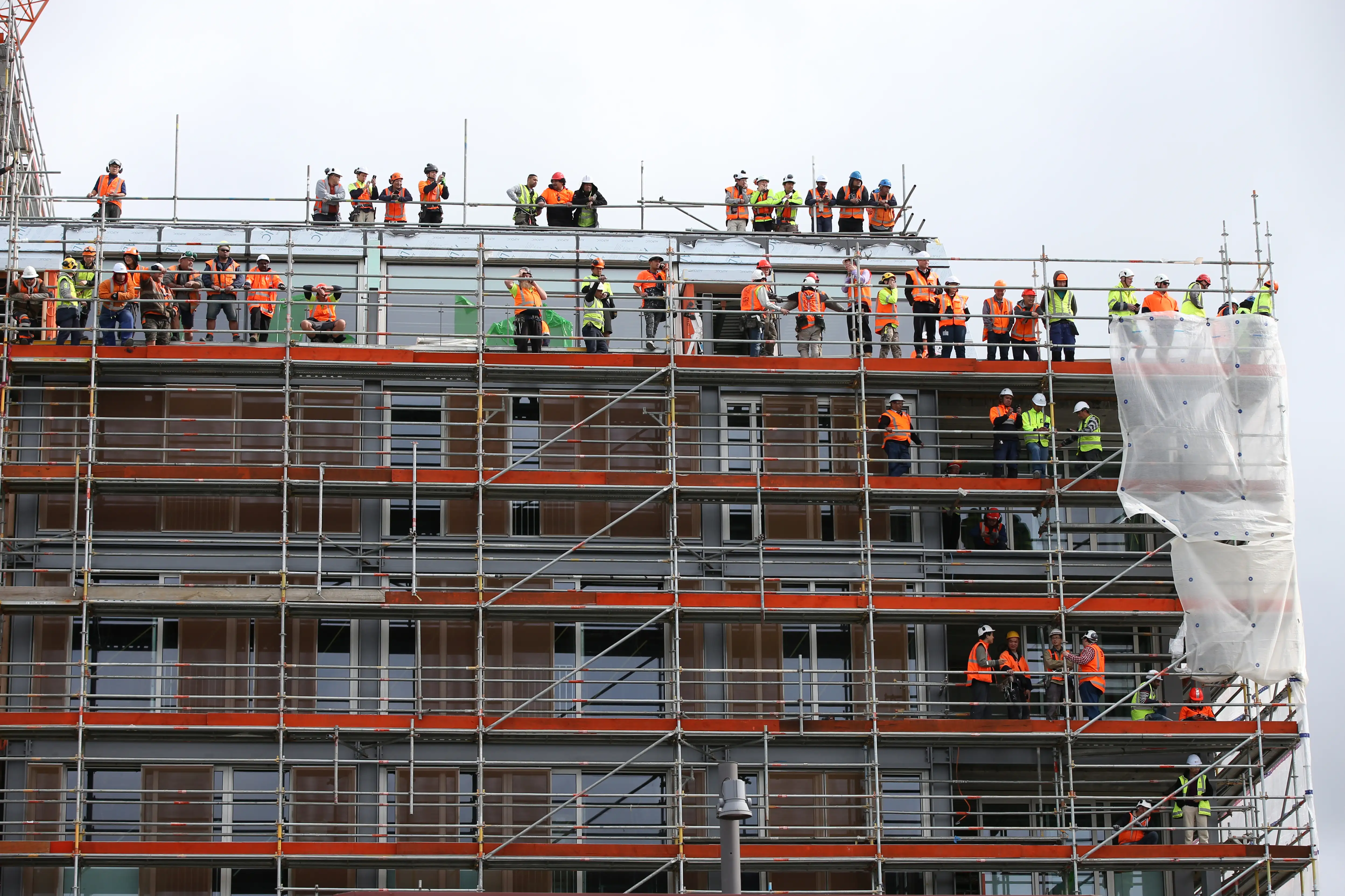
Sciences & Technology
Australia’s construction industry must help build a sustainable future

For the first time in nearly 20 years, Victoria is re-thinking its approach to ensuring vulnerable contractors in the construction industry get paid for the work they do
Published 22 September 2025
‘Why can’t I just get paid for the work I have done?’ This is a question many tradies in Victoria’s construction industry ask every day.
But the threat of non-payment by contractors and clients higher up the contracting chain doesn’t just affect the hundreds of thousands of people who rely on the construction industry for their livelihoods.

It also makes building and maintaining our homes and infrastructure far more costly than it needs to be.
If construction contractors and suppliers cannot rely on getting paid on time, the only rational thing they can do to cover the risk of non-payment is to increase their prices.
Construction has always been a business engaged in by private companies and individuals in the pursuit of profit. So, it shouldn’t come as a surprise that parties will seek any advantage they can within – and, not infrequently, outside – the law.
This is where the ‘security of payment’ laws step in.
Over the past 25 years, Australia’s state and territory governments have used these laws to set rules about what can and can’t be done in construction contracts, as well as to speed up dispute resolution if the parties don’t agree on how much is payable.
In mid-September 2025, the latest reforms were introduced into the Victorian Parliament.

Sciences & Technology
Australia’s construction industry must help build a sustainable future
The Building Legislation Amendment (Fairer Payments on Jobsites and Other Matters) Bill 2025, amending Victoria’s Building and Construction Industry Security of Payment Act 2002, is the result of multiple industry consultations, including a Victorian Parliamentary Committee Inquiry that reported in 2023.
The Bill sought to cherry-pick changes from other states over the past few years, particularly those in New South Wales and Western Australia, following a 2017 national review.
The key proposed changes include:
Allowing adjudicators, courts and others to declare terms in contracts unfair and unenforceable
Imposing maximum limits on how long claimants have to claim payment and how long respondents have to pay
Giving parties who provide bank guarantees or other types of payment security the right to receive notice before it is called upon and to have it promptly returned
Imposing a ‘blackout period’ for the Act’s processes across the Christmas industry shutdown, de-fanging the risk that respondents to payment claims (and their lawyers) find themselves ‘ambushed’ when their offices are closed for the holidays
Removing Victoria’s unique and complex ‘excluded amounts’ regime: this confuses and slows down the Act’s fast-track scheme for payment and dispute resolution because the regime does not allow claims under the Act for commonly occurring matters like latent site conditions or delay costs.

Overall, the Bill proposes sensible changes that should bring Victoria into line with other states where payment adjudication has become an accepted (though sometimes still resisted) part of the construction contracting landscape.
That said, the many ways the proposed legislation limits parties’ abilities to write their preferred contracts will remain controversial, especially as the Bill’s intent seems to be to override existing contracts where their provisions are out of line with it.
It’s also worth bearing in mind that the Bill runs to around 80 pages of amendments, adding to an existing Act of about the same length.
So, there is significant potential for ‘devil in the detail’ to be lurking: ambiguities and loopholes in the eight Acts in place around the country have made security of payment one of the most litigated areas of Australian construction law over the past quarter century (indeed, there are so many cases that we have an entire Masters subject on payment at Melbourne Law School).

Politics & Society
Building faster isn’t building better
The current Bill also only brings in the ‘tranche 1’ reforms; there’s a second tranche of complex issues – those the Victorian Government did not support in full in its response to the Committee’s recommendations – still under consideration.
Despite these challenges, there is cause for optimism.
These reforms could help move the dial towards the Government’s goal of making sure subcontractors “get paid fairly and promptly for their hard work”.
They are part of a broader Victorian program that recognises that effective construction industry regulation requires a holistic approach.
That program is founded upon the creation of the Building and Plumbing Commission, intended as a well-resourced regulator that accepts that ‘the buck stops’ with it. The BPC also intends to be a ‘one-stop shop’, bringing together the Victorian Building Authority (VBA), Domestic Building Dispute Resolution Victoria (DBDRV) and the domestic building insurance arm of the Victorian Managed Insurance Authority (VMIA).

The fact that the Bill brings Victoria into line with key aspects of the security of payment regimes in other states should reduce transaction costs for national construction firms, along with their lawyers and other consultants.
Ultimately, though, the reforms will only be as effective as the industry and broader community allow them to be.
This buy-in requires that anyone affected be informed about the changes and ensures any unworkable aspects are resolved before the Bill is passed.
If this happens, Victoria has a once-in-a-generation opportunity to do what the security of payment laws were originally designed to do: “stamp out the un-Australian practice of not paying contractors for work they undertake on construction”.